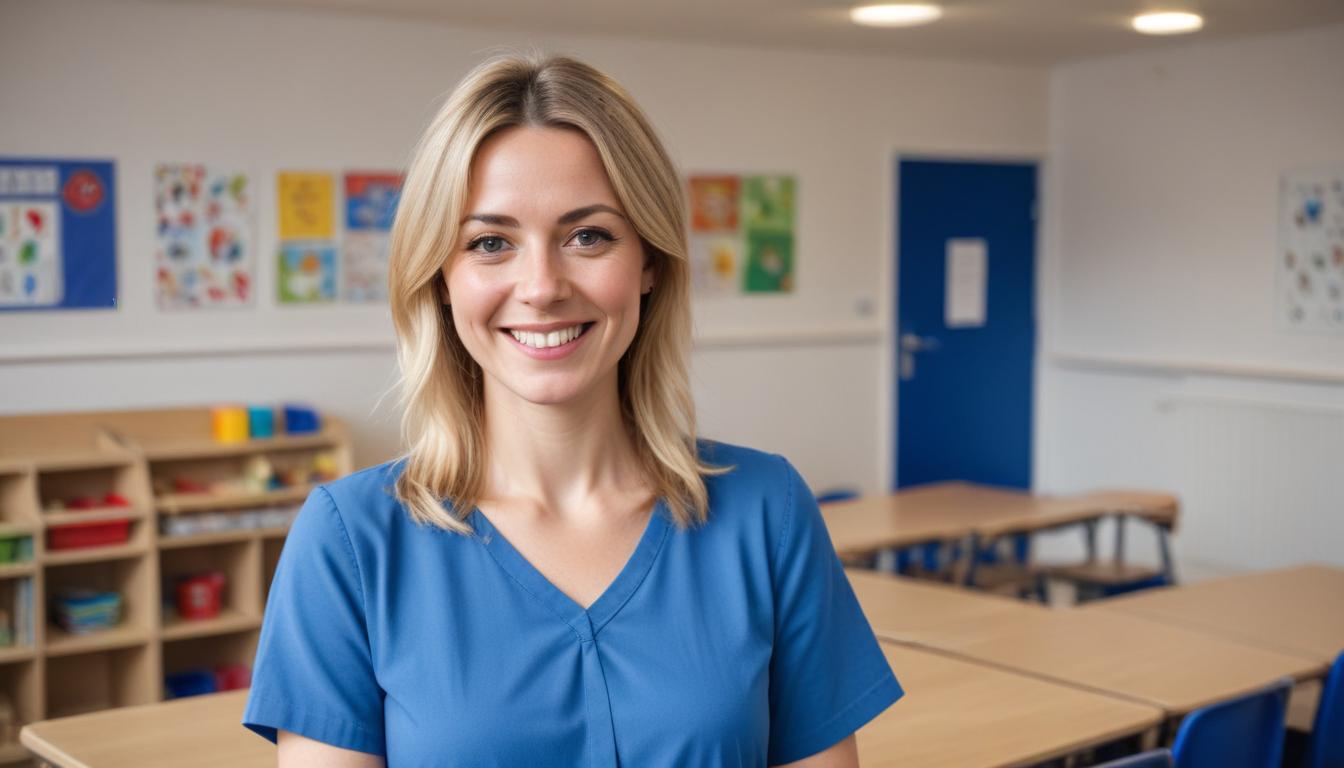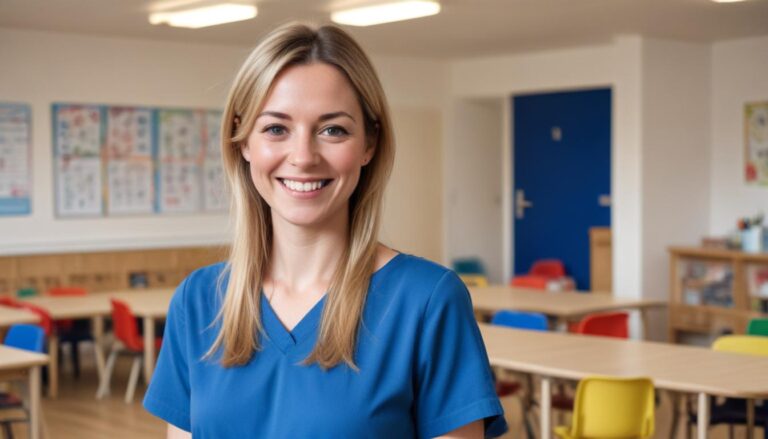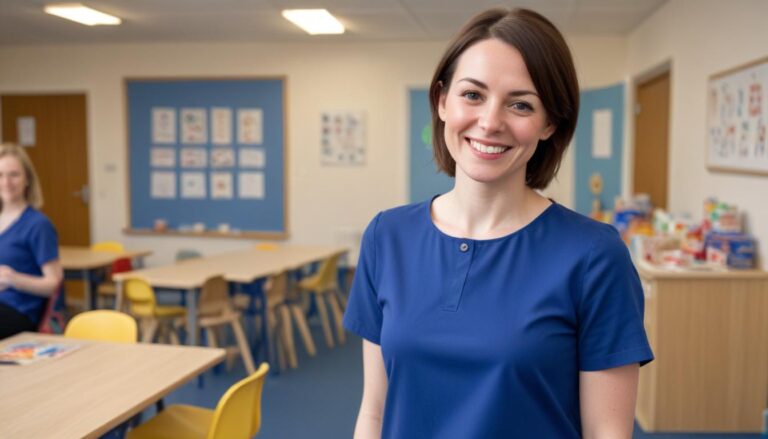Summary
- Children learn in various ways, including through observation, play, and interaction with others, which are essential for their development.
- Engaging in play—both structured and unstructured—supports physical, cognitive, and emotional growth, fostering creativity and problem-solving skills.
- Communication and social interaction with peers and adults enhance language skills and emotional regulation, helping children understand social dynamics.
- Learning from mistakes is a valuable process that builds resilience, while sensory experiences enrich understanding and retention of new concepts.
This guide will help you answer 1.1. Identify ways that children can learn.
As an Early Years Practitioner, understanding how children learn is fundamental to providing high-quality care and education. Children have varied learning styles, and recognising these can actually impact their development. Let’s explore different ways children can learn.
Observation
Observation is one of the most basic forms of learning. Children watch the actions and interactions of people around them. This helps them understand social norms, language, and behaviour. Through careful observation, children can mimic gestures, language, and other actions.
Examples:
- Watching adults or peers and imitating their actions.
- Understanding emotions by observing facial expressions and body language.
Play
Play is a powerful tool for learning. It helps children develop physical, cognitive, and emotional skills. Through play, children learn about the world around them while enhancing creativity and imagination.
Types of Play:
- Free Play: Unstructured play that allows children to explore their interests.
- Structured Play: Activities guided by an adult with specific goals.
- Imaginative Play: Role-playing scenarios that develop creativity and empathy.
Interaction and Communication
Children learn through interaction with adults and peers. Communication is not only about language but also involves non-verbal cues. These interactions help children develop social skills, language acquisition, and emotional regulation.
Methods:
- Participating in conversations with adults and peers.
- Listening to stories and asking questions.
Repetition and Practice
Repeating tasks helps children remember and master new skills. Regularly practising an activity leads to refinement and improvement, building confidence and competence.
Activities:
- Repeating songs and rhymes to enhance memory.
- Engaging in regular physical activities to develop motor skills.
Exploration and Experimentation
Encouraging children to explore their environment supports learning. Experimentation allows them to discover cause and effect, solve problems, and understand new concepts.
Opportunities:
- Exploring nature and outdoor environments.
- Engaging in science experiments to learn about physical properties.
Guided Learning
Adults play an important role in guiding learning by providing appropriate challenges and support. This approach is often structured and planned with specific learning outcomes in mind.
Techniques:
- One-on-one tutoring or mentoring.
- Structured educational activities with clear objectives.
Learning Through Mistakes
Mistakes are valuable learning opportunities. They teach children to try again and develop problem-solving skills. Resilience and persistence are fostered when children learn from their errors.
Approaches:
- Encouraging a positive attitude towards mistakes.
- Helping children reflect on what went wrong and how to improve.
Sensory Experiences
Children make sense of the world through their senses. Multisensory activities support learning by engaging sight, sound, touch, taste, and smell, which enriches understanding and retention.
Examples:
- Playing with different textures, like sand or water.
- Listening to music or natural sounds.
Instruction and Teaching
Direct instruction involves teaching specific skills or knowledge. It’s often more structured, allowing children to gain information that they might not discover independently.
Methods:
- Classroom teaching with specific lessons.
- Workshops and educational sessions.
Questioning and Enquiry
Encouraging children to ask questions and investigate leads to deeper learning. Enquiry-based learning supports critical thinking and curiosity.
Techniques:
- Creating opportunities for children to ask questions.
- Setting up experiments or scenarios that require problem-solving.
Modelling
Adults can model behaviour or skills, providing a clear example for children to follow. Modelling helps children understand expectations and acquire new skills.
Examples:
- Demonstrating how to tie shoelaces.
- Showing how to share and take turns.
Peer Learning
Interacting with peers is essential for children’s social and intellectual development. Peer learning involves collaborating, sharing ideas, and solving problems together, which builds teamwork and communication skills.
Opportunities:
- Group projects or activities.
- Playing cooperative games.
Storytelling and Role Play
Storytelling captures children’s imagination, allowing them to learn through characters and plot developments. Role-play further enhances this by enabling children to act out scenarios, developing empathy and understanding.
Approaches:
- Reading stories and discussing themes and characters.
- Using role play to explore real-life situations.
Technology
In today’s digital age, technology offers new ways for children to learn. Interactive apps, educational games, and online resources can make learning more engaging and fun.
Options:
- Educational software that adapts to the child’s learning pace.
- Interactive storytelling apps that encourage reading.
Contextual Learning
Children learn effectively when they can relate new information to their existing knowledge. Contextual learning connects new ideas to familiar contexts, making it easier to understand and remember.
Implementation:
- Relating mathematical concepts to everyday objects.
- Discussing scientific phenomena through real-life examples.
Feedback and Reflection
Receiving feedback helps children see their progress and areas for improvement. Encouraging reflection on their experiences and learning processes promotes self-awareness.
Practices:
- Providing constructive feedback on tasks and behaviour.
- Encouraging children to discuss their feelings and thoughts.
Final Thoughts
Understanding the varied ways children learn enables early years practitioners to support and enhance each child’s development. By recognising and nurturing different learning styles, practitioners can create inclusive, engaging, and supportive environments for all children. Tailoring approaches to match individual needs ensures that every child has the opportunity to thrive.
Subscribe to Newsletter
Get the latest news and updates from Care Learning and be first to know about our free courses when they launch.







